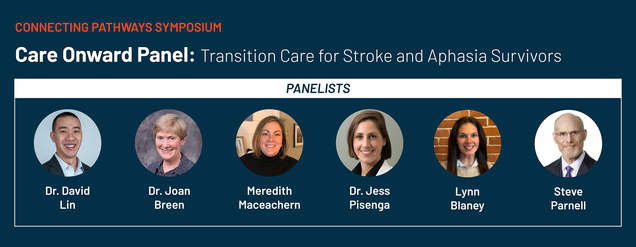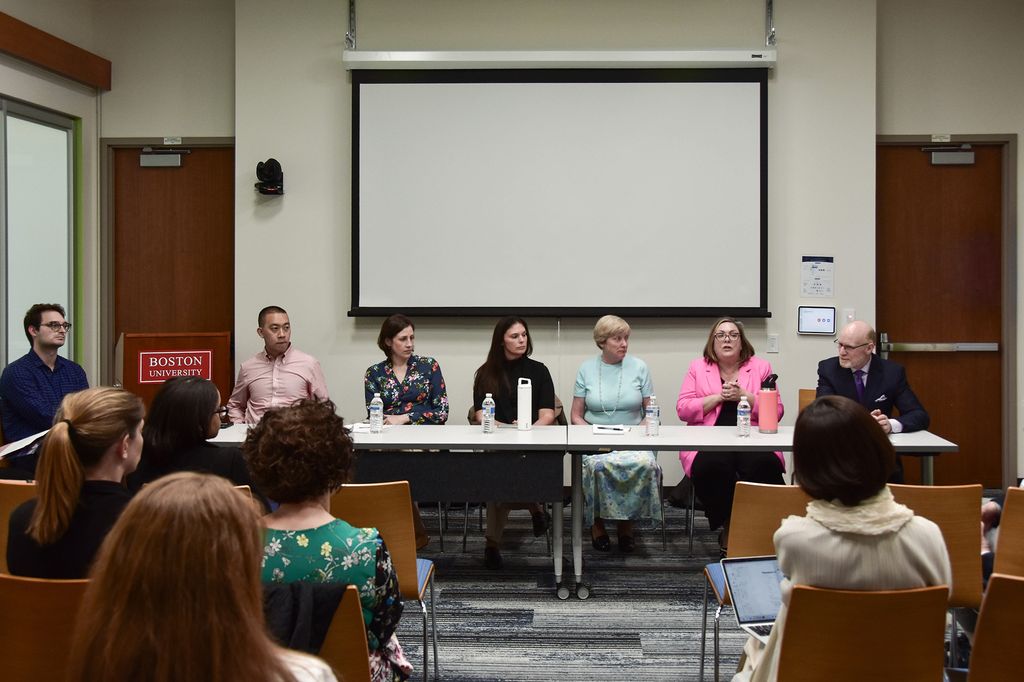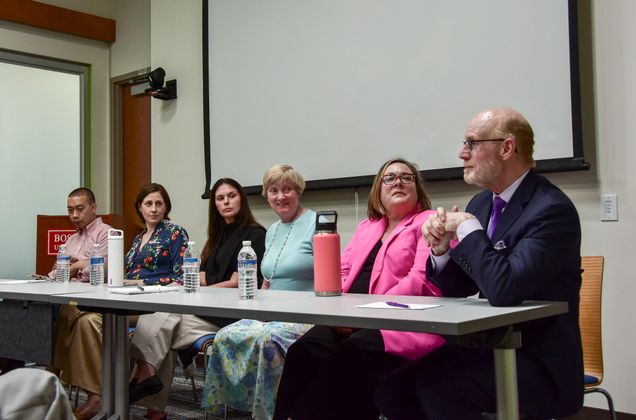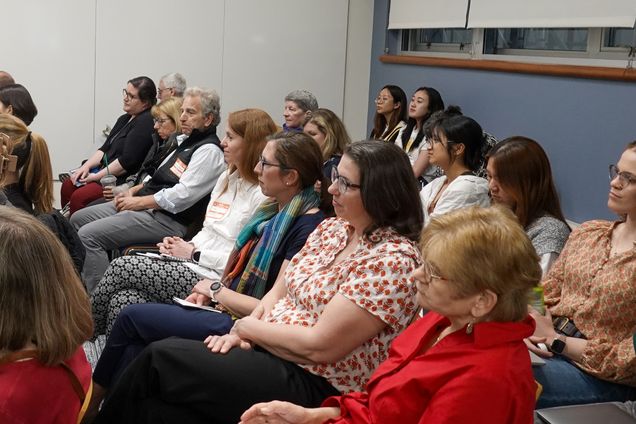Care Onward Panel

Panelists
Dr. David Lin
Neurologist at Massachusetts General Hospital
Dr. Joan Breen
Director of Neurology Day Rehabilitation Program at Whittier Hospital
Meredith Maceachern
Director of the Intensive Cognitive and Communication Rehabilitation (ICCR) Program at Boston University
Dr. Jess Pisenga
Director of Speech Language Pathology at Boston Medical Center
Lynn Blaney
Occupational Therapist at Mass General Brigham
Steve Parnell
Stroke Survivor and NAA Aphasia Advocate
On April 28th, 2025, the Center for Brain Recovery co-hosted the Care Onward Panel in collaboration with Stroke Onward. The panel gathered stroke survivors, neurologists, rehabilitation clinicians, researchers, and caregivers to discuss topics of transition care and psychosocial support for stroke and aphasia patients.
The list of panelists included numerous accomplished professionals with diverse perspectives and expertise on the topics of stroke and aphasia.
The panel discussion focused on many topics, including innovative rehabilitation models, survivor experiences, the need to establish stroke as a chronic condition, and the need for advocacy for change. From the discussion, panelists and attendees were able to identify a key breakdown point in the stroke recovery process: the transition of care between clinicians and loved ones, causing a noticeable gap between acute care and outpatient rehabilitation. This breakdown can lead to patients and family caregivers feeling abandoned and unsure of where to go next. These challenges can be even further exacerbated by an individual’s social determinants of health such as financial resources, housing, or food security.
In response to this breakdown point being identified, the following question was posed.
How can stroke patients and their families be better supported during the transition to independent living and functioning?
The responses provided a range of inputs which are summarized below.
Transition Care Coordination
- The development of better hand-off protocols between acute care and rehabilitation teams or family caregivers would help to bridge the gap where patients begin to feel lost.
- Consideration of a patient’s social determinants can help inform care teams about what plan would be best suited for them, and guide the transition process.
- For family caregivers, the transition between being surrounded by doctors and nurses to suddenly being back at home without a network of specialists can be quite jarring. Emphasizing incorporation of family caregivers into the transition planning process could better prepare them by equipping them with the appropriate tools and understanding of how to support their loved one.
Personalized and Flexible Rehabilitation
- Rehabilitation programs need to be able to adapt to the needs of patients, both in terms of programming and logistics (appointment/meeting cadence, 1:1 versus group, in-person versus remote, etc.).
- Flexibility is critical to making programs more inclusive.
- It is also important to redefine outcome measures to include quality of life and reintegration metrics.
Advocacy and Community Engagement
- Enacting systemic change requires a great deal of time, awareness, and action. Those who are interested in making a difference can join existing advocacy groups, or form new ones where there are gaps. The goal is to establish that stroke and aphasia is a chronic condition that survivors have to live with.
- Push for policy changes surrounding coverage for rehabilitation care, inform the general public of aphasia and post-stroke challenges, and advocate for those who cannot advocate for themselves.
The Care Onward Panel successfully promoted a valuable dialogue amongst panelists and the audience, but this conversation was just the beginning. There is still much work to be done and this event stressed the importance of having multiple voices and perspectives in the room when it comes to rehabilitation and transition care for stroke and aphasia patients.
If you are interested in attending one of our future events, please subscribe to our email list and newsletter. And if you would like to support the BU Center for Brain Recovery in our mission of treating, curing, and preventing brain disorders, please visit the Support Our Work page to learn how you can make a difference.




